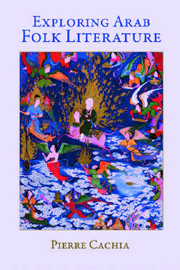Book contents
- Frontmatter
- Contents
- Acknowledgements
- Dedication
- Foreword by Professor Clive Holes
- Introduction
- The Transcription of Both Classical and Colloquial Arabic
- Part 1 Fact Finding
- Part 2 Single or Related Items
- Part 3 Cultural and Social Implications
- 14 Two Perspectives on the ‘Other’ in Arabic Literature
- 15 Maltese: Arabic Roots and Sundry Grafts
- 16 Social Values Reflected in Egyptian Popular Ballads Studies in Modern Arabic Literature, ed. R. C. Ostle (London, 1975)
- 17 Folk Themes in the Works of Najīb Surūr Arabic and Middle Eastern Literatures, 3, 2 (July 2000)
18 - Elite Treatment of Honour Crimes in Modern Egypt (previously unpublished)
from Part 3 - Cultural and Social Implications
Published online by Cambridge University Press: 05 February 2015
- Frontmatter
- Contents
- Acknowledgements
- Dedication
- Foreword by Professor Clive Holes
- Introduction
- The Transcription of Both Classical and Colloquial Arabic
- Part 1 Fact Finding
- Part 2 Single or Related Items
- Part 3 Cultural and Social Implications
- 14 Two Perspectives on the ‘Other’ in Arabic Literature
- 15 Maltese: Arabic Roots and Sundry Grafts
- 16 Social Values Reflected in Egyptian Popular Ballads Studies in Modern Arabic Literature, ed. R. C. Ostle (London, 1975)
- 17 Folk Themes in the Works of Najīb Surūr Arabic and Middle Eastern Literatures, 3, 2 (July 2000)
Summary
The Arab elite has often condemned or even more generally ignored folk literature. Even leading modernists like Ṭāhā Ḥusayn (1889–1973) looked upon colloquial forms of Arabic as debased. This in itself made the compositions of the common people unworthy of a serious man's attention except as entertainment. Furthermore, most Arab writers of the twentieth century saw themselves not only as artists but also as agents of cultural and social reform, and shied away from themes that struck them as trivial or reactionary.
The resulting gap is indeed wide between the perceptions of the educated, especially those who have received a Western type of education and have adopted a Western type of dress – the efendis – and the gallabiyya wearers, who form the great majority of the population in the countryside and the poorer quarters of the cities. And nowhere is the gap wider than on the theme of honour crimes.
These account for most of the violence that occurs in an otherwise peaceable society, for its inherited ethos calls out for blood in two situations that brook no compromise. The first is the ṯr, which requires a murder to be avenged by a male member of the victim's family. The second demands that a woman who has departed from the strictest standards of chastity to be slaughtered by a near male relative, usually her father or her brother.
- Type
- Chapter
- Information
- Exploring Arab Folk Literature , pp. 214 - 222Publisher: Edinburgh University PressPrint publication year: 2011



